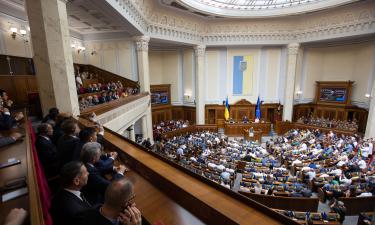Why Israel wants no peace in Palestine
 Palestine has reunited. The leaders of Fatah and Hamas who were at war earlier signed an agreement for reconciliation in Cairo. This agreement was joined by 11 of the most major Palestinian factions, including Islamic Jihad.
Palestine has reunited. The leaders of Fatah and Hamas who were at war earlier signed an agreement for reconciliation in Cairo. This agreement was joined by 11 of the most major Palestinian factions, including Islamic Jihad.
This means that in the future they will hold elections and form a government. According to the leader of the Palestinian National Authority (PNA) and the head of Fatah, Mahmoud Abbas, it would consist of independent technocrats and would prepare for elections and reconstruction of Gaza after the Israeli strikes.
In this regard, he stated that the Palestinians have forever turned a" black page of the split" in their history. Abbas and the leader of the political wing of Hamas Meshaal had no contact for nearly four years after the Hamas held an armed coup in the Gaza Strip in 2007. The West Bank remained under the control of Fatah. In mid-March of 2010 the parties announced their intention to negotiate. However, until recently they have not been able to achieve any results. Now, after the departure of Mubarak who was rather cool towards the Islamists of Hamas, it became possible.
What does this mean for Israel? Its reaction provides the most eloquent answer. It is not accident that Tel Aviv originally was very hostile towards the prospect of restoring Palestinian unity. It was not satisfied by the statements of Abbas that the future "united cabinet" will not intervene in a political settlement with Israel, because now the peace process will remain the prerogative of the Palestine Liberation Organization (PLO) dominated by the internationally recognized Fatah and where there is little influence of Islamists from Hamas. Much more convincing for Tel Aviv were the words of Mashaal spoken during the signing ceremony: "Our common battle is a battle with Israel."
Originally Tel Aviv opposed the participation in the signing of the agreement of Hamas that does not recognize Israel's existence. According to Israeli Prime Minister Benjamin Netanyahu, the alliance with the Islamists would deprive Fatah, and therefore all Palestinians, opportunities for dialogue and cooperation with Israel.
In turn, Israeli Defense Minister Ehud Barak said that his country would not recognize the new Palestinian government until such time when it "dismantles the terrorist infrastructure" and "recognizes Israel and all the agreements previously signed with it."
The international community put forward the same requirements to the previous Palestinian government, established after the victory of Hamas in parliamentary elections in 2006, and split a year later because of an Islamist coup in Gaza. At that time Hamas refused to comply with these requirements and found itself in the international political and economic isolation.
Now Israel is the losing party that had to accept the inevitable. After all, the agreement was officially sanctioned by the presence of not only the foreign ministers of Turkey and Egypt, the leaders of the Arab League and Secretary General of the Organization of Islamic Conference Ekmeleddin Ihsanoglu, but also the United Nations officials, as well as head of European diplomacy Catherine Ashton.
However, the presence at the official ceremony of the chief of the Egyptian General Intelligence Murad Muwafi indicated who gets the most credit in the delicate matter of reconciliation of the two natural enemies.
Whatever the case is, the events apparently were not in agreement with the plans of Tel Aviv. Perhaps the Israelis, whose security services to a large extent worked on the instigation of the Palestinian strife, did not believe in the possibility of concluding such an agreement until the last minute. In Israel everyone understands that a unified Palestinian state poses a great threat.
In terms of the military, the Palestinians mean very little. The main trouble for the Israelis is the claims of Palestinians on the territories captured from the Arabs by Tel Aviv in 1948-1967. This is not exclusively about returning of many Arab refugees to these areas.
It is noteworthy that at a signing ceremony of the peace agreement with Hamas the Abbas called on Israelis for the resumption of negotiations "to abandon the expansion of settlements in the West Bank and Jewish neighborhoods in east Jerusalem." The total population there is half a million people.
This proves once again that even "legal" Palestinians are not going to forget about their own interests. Moreover, these claims are supported by increasingly more countries. The absence of a unified government in Palestine has always given the Israelis a reason to refuse to fulfill their promises. Now there are fewer possibilities for such a maneuver.
However, the question arises as to how long the peace between Fatah and Hamas will last. It is rather easy to rekindle the old enmity. It would be sufficient for the Israeli secret service to distribute another batch of compromising materials. Although the parties declare that they have agreed on the division of portfolios, it is difficult to imagine how this would happen in practice.
However, there will be enough pitfalls in the way of a unified Palestinian government. It is obvious that Hamas has proved its strength in the collision of 2007, when it tried to make the Fatah dance to its tune. If they do not succeed, there is no guarantee that Hamas would not be throwing the Abbas from the roofs of apartment buildings again.
Sergei Balmasov
Pravda.Ru
Subscribe to Pravda.Ru Telegram channel, Facebook, RSS!




